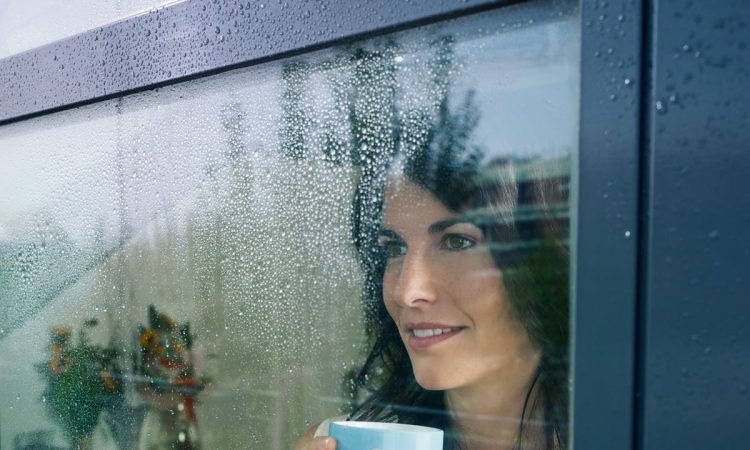
NEW STUDY REVEALS THAT BRITONS ARE PLANNING ADVENTURES TO KEEP THEIR ENDORPHINS FLOWING IN LOCKDOWN
FOURTEEN million Britons are blowing away the Corona blues by dreaming about their post-pandemic adventures, it has emerged.
Experts found over one in five (22%) are cheering themselves up during the COVID-19 lockdown by researching potential places to explore once restrictions are lifted – harbouring the escapism they once took for granted (11%).
Others are making “fun diaries” of places they want to go, reading travel blogs, posting images of dream destinations on social media and looking at pictures in a bid to rekindle memories and keep their minds occupied amid the chaos.
With people seeking to reignite moments of fun and friendship, one in five (19%) also said they were keeping themselves busy to allow them to feel positive about the future and look forward to better times ahead.
It also emerged Brits are using the time to read more books (34%), reconnect with family (15%), catch up on boxsets (42%) and spruce up the garden (28%).
Watching online tutorials (13%), learning a language (4%) relaxing with a jigsaw (10%), dancing (5%) and even browsing property pages online (4%) also made the list.
But the UK study of 2,000 adults, commissioned by Bimble , also revealed we are finding it hard to stay upbeat all the time, with women struggling slightly more than men in coming to terms with being stuck in the house all day.
Overall, 22 per cent of females said their mood crashed twice a day compared to 19 per cent of men, with the average slump lasting for just under an hour (56.3mins).
Leading psychologist, Dr Becky Spelman said; “We’re facing unprecedented times. As we find ourselves living in isolation with no definitive end in sight, it’s very easy for us to feel out of control, which in turn can have a negative impact on our mood and overall well-being.
“Nobody knows for sure when the current situation will change, but it is still important to keep looking to the future and to make plans for when things are better.
“When it comes to days out, holidays and adventure, actually planning the break is half the fun. Imagining where you want to go, what you would like to do when you get there, and even envisioning your pre-holiday shopping trip for the beach or adventure-wear can help to lift your mood.
“In fact, research shows that thinking about happier times in the future can help your body to secrete endorphins, which in turn can lead to a more positive mood and mindset. The benefits of planning for happier times in the future are scientifically proven”.
Playing video games (9%), trying new recipes (15%) and playing board games (9%) also ranked highly as did playing with pets (17%) and relaxing with a beer or glass of wine (11%).
Around one in six (16%) said they had adopted a new pastime to keep them optimistic and give them hope this will all soon blow over.
And close to ten per cent (9%) said it helped keep their sense of adventure alive.
‘It’s relaxing’, and ‘It reduces my stress levels’, were also popular answers, as was ‘It gives me a sense of purpose’.
Women are more likely to keep busy to take their mind off things (48%), while men occupy themselves to relax (34%).
The nation’s females also enjoy regaining a sense of control (30%) at a time when the number of cases and deaths caused by the virus is spiralling out of control.
When it comes to feeling down amid the crisis, over 55s are suffering more than most, with a mood slump which lasts around an hour and a quarter – 76 mins.
The 45 to 55 age group feel low for just over an hour around an hour at 69 minutes.
Despite being marred with a reputation for being ‘snowflakes’, millennials aged between 25-34 are proving more resilient – with low moods lasting an average of 56.23 mins, while those aged 16 to 24s mood dips for just 35 and a half minutes.
Dr Becky Spelman continued: “People sometimes worry that they are being selfish or inconsiderate when they think about themselves and their plans, instead of endlessly fretting about the world’s current difficulties.
“It’s not at all selfish to invest a little time in caring for your own emotional and mental health—and if you do, you will be in a much better position to help take care of others.
“If thinking to the future, and planning for the adventures that you will one day be able to take makes you feel happier and raises your mood, it will be easier for you to be strong when times are difficult”.
“You might like to think about how you can share a future day out or trip with loved ones from your family, or with close friends.
“Imagining the good times that you will have together can also prompt you to make a few phone calls and start planning together, and help everyone to feel less lonely.
“It might be a good idea to start your post isolation planning with a vision board. A vision board is a corkboard or a simple piece of cardboard onto which you can attach images and ideas as they occur to you —for example, images downloaded from the internet, or cut out of the newspaper.
“The vision board will serve as a handy visual tool that will help to ground your planning and to focus on your dreams for the future”.
TOP 50 THINGS ADULTS ARE DOING TO KEEP THEIR ENDORPHINS FLOWING DURING ISOLATION
| 1 | Watching films / TV shows / Box sets / Streaming service series |
| 2 | Listening to music |
| 3 | Reading |
| 4 | Speaking to friends and family more regularly |
| 5 | Gardening |
| 6 | Cooking/Baking |
| 7 | Exercising |
| 8 | Spring cleaning the entire house |
| 9 | Repairing things around the house / Doing DIY |
| 10 | Playing video games |
| 11 | Sorting out your drawers / kid’s drawers |
| 12 | Playing with my pet |
| 13 | Trying new recipes |
| 14 | Reconnecting with family |
| 15 | Watching YouTube tutorials |
| 16 | Taking time to recharge the batteries with a glass of wine/beer |
| 17 | Jigsaw Puzzles |
| 18 | Playing board games |
| 19 | Knitting/Sewing/Needlecraft |
| 20 | Planning future holidays |
| 21 | Practising self-care (i.e. facials and looking after my nails) |
| 22 | Speaking with neighbours |
| 23 | Yoga |
| 24 | Colouring |
| 25 | Playing online games versus relatives |
| 26 | Playing Cards |
| 27 | Looking at beautiful images on social media |
| 28 | Meditation |
| 29 | Painting |
| 30 | Singing |
| 31 | Making lists of places we want to go when we can go out – sometimes known as making ‘fun-diaries’ |
| 32 | Looking at holiday pictures |
| 33 | Virtual parties on platforms such as Facetime, Google Hangouts or Zoom |
| 34 | Dancing |
| 35 | Learning something you have longed to try for a while |
| 36 | Reigniting friendships from the past |
| 37 | Posting pictures on social media of your favourite places/or places you want to visit |
| 38 | Virtual games nights on platforms such as Facetime, Google Hangouts or Zoom |
| 39 | Repairing clothes |
| 40 | Browsing property pages online / looking at properties to buy or rent |
| 41 | Applying makeup |
| 42 | Reading travel blogs/magazines |
| 43 | Practicing a musical instrument |
| 44 | Learning languages |
| 45 | Retraining yourself |
| 46 | Journaling/Writing |
| 47 | Learning a musical instrument |
| 48 | Buying flowers |
| 49 | Recreating travel experiences in the house – e.g camping, indoor safaris, hobby horse pony riding |
| 50 | Making assault courses in the garden |








